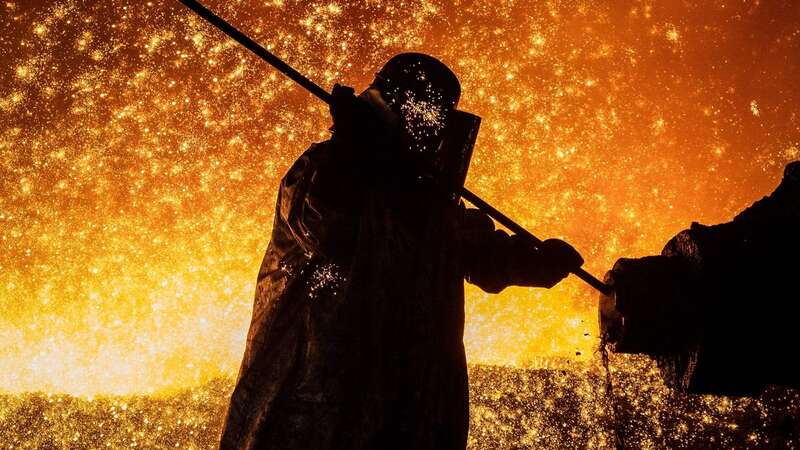
Thousands of steelworkers were left in limbo today after bosses delayed an announcement on redundancies.
Tata was expected to confirm 3,000 posts would go at Britain’s biggest steel plant by March. It was also due to bring to an end “virgin” steelmaking at Port Talbot in South Wales after 121 years, with the mothballing of “heavy end” operations - blast furnaces and coke ovens.
But an announcement due after a board meeting in India today was shelved at the last minute. The chaos comes two months after the Tories announced £500million of taxpayers’ money will be pumped into the factory to help it switch to less-polluting electric arc furnaces (EAF), which require less manpower.
The firm will inject another £725m under the scheme, following months of negotiations with ministers and officials. Insiders today warned the announcement of 3,000 job cuts and the decommissioning of the blast furnaces has only been delayed. They do not expect the posts or furnaces to be saved.
Unite general secretary Sharon Graham blasted the firm’s ongoing “consideration of mass redundancies”, warning the “UK steel industry is at a crossroads”. She said: “The strategy of successive governments has failed. Taxpayers should not be footing the bill for new investment unless that is linked to binding job guarantees.”
 Queen honoured in London New Year's fireworks before turning into King Charles
Queen honoured in London New Year's fireworks before turning into King Charles
The Mirror understands it will be at least four years before electric arc furnaces can begin production - and even then the steel produced will not be “virgin” metal but melted down scrap. Until then, foreign “hot rolled” or “slab” steel manufactured abroad will be imported for use at Port Talbot, where it will be converted into products for use in other sectors.
Insiders previously hoped some “heavy end” production would continue until the electric systems were able to produce steel. Consultants from Syndex - drafted in by unions - are drawing up plans for ways the sector could decarbonise without widespread job cuts. Workers’ leaders want Tata chiefs to “give proper consideration” to its report, once it is published.
Community union’s general secretary Roy Rickhuss said: "The unions’ experts, Syndex, have been working tirelessly to review the company’s plans and develop potential alternatives, and we are convinced we can both decarbonise steelmaking and deliver a just transition for the workforce. We call on Tata to pull back from the brink and commit to working with the unions and our experts to agree the way forward and head off a major industrial dispute."
GMB national officer Charlotte Brumpton-Childs said the union “expects a full and meaningful consultation before any detailed plans are announced”. She added: "We are working at pace with our experts Syndex to analyse the company's proposal and offer a viable and reasonable alternative that safeguards jobs and creates a genuinely 'just' transition. This was fed back to the company this morning and remains the position of the unions."
A Tata Steel spokesman said: "We hope to start formal consultation with our employee representatives, shortly. In these discussions, we will share more details about our proposals to transition to a decarbonised future for Tata Steel UK. We believe our £1.25bn proposal to transition to green steelmaking will secure the business for the longer term, bolster UK steel security and help develop a green ecosystem in the region. We are committed to a meaningful information and consultation process with our trade union partners about these proposals and will carefully consider any proposals put forward.”
Britain’s £2.9billion steel industry directly employs 39,800 workers - including 4,000 at Port Talbot, where Tata reportedly loses £1m a day - with another 50,000 in supply chains. But the sector is blamed for 14% of the UK’s industrial emissions and 2.7% of all Britain’s greenhouse gases.
Cutting pollution from steelmaking is seen as key to the Government meeting the legally-binding target of net-zero emissions by 2050. Fears are also growing for up to 2,000 staff at British Steel’s Scunthorpe mill, where bosses are locked in talks with ministers and officials over moving to greener production.
The Mirror has been campaigning to Save Our Steel since 2015.
Read more similar news:
Comments:
comments powered by Disqus

































